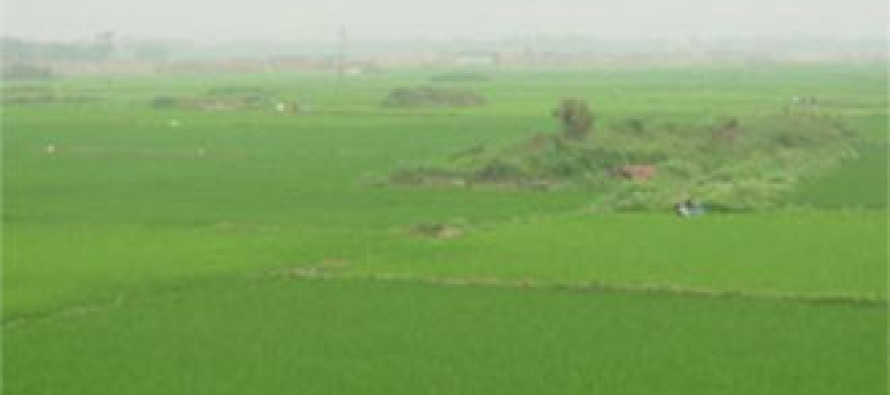Climate Change, Food and Energy Security: Bangladesh Context

While climate change is slowly and surely affecting agricultural production in Bangladesh, the fear is growing by the reports that USA, EU and Canada are diverting huge quantity of cereals and corns for conversion into bio-fuel. Liquid bio-fuels derived from food crops are competing for more arable land and water resources, which lead to higher food prices for consumers, including small producers in developing countries like Bangladesh. So, impact of high food price based on increased use of land area and resources under bio fuel production is contextual.
Agricultural Production:
Climate change is predicted to reduce grain production and increase Bangladesh’s reliance on other crops and imported food grains. Overall agricultural GDP in Bangladesh is projected to be 3.1% lower each year – the predicted loss in agricultural GDP by 2050 would be US $26 billion.
Agriculture, a sector accounting for nearly 20% of GDP and 65% of labour force in Bangladesh, is greatly at risk due to an increasing frequency of floods, droughts and cyclones. The research findings have indicated that irregular floods of high magnitude could increase flows into the three major rivers and could stimulate a 10% increase in flooded areas in Bangladesh by 2050. A significant portion of coastal areas of Kutubdia (65% of 250 sq km), Bhola (227 sq km) and Swandip (180 sq km) have already gone under water.

Food Insecurity:
Food security exists when all people, at all times, have physical and economic access to sufficient, safe and nutritious food to meet their dietary needs and food preferences for an active and healthy life. Food insecurity encompasses unhealthy transition from plant based diets to diets of highly refined foods of meat and diary products that contain high levels of saturated fats. As far as food intake is concerned, Bangladesh’s score on various health and social indices is not encouraging. It has been said that despite efforts of alleviate poverty in Bangladesh, 29% of the population still lives in abject poverty, with a daily income of one US dollar. Bangladesh is 18th among the 25 malnutrition-affected countries in Asia, and it results in 51% underweight child, deficit in Vitamins and minerals.
Requirement of food grain in Bangladesh has been estimated 32 million metric tons. On an average food deficit in Bangladesh is 1-2 million metric tons (2006-07). It has been predicted that almost no wheat would grow in Bangladesh if the temperature rises by 2 degree Celsius.

Energy Insecurity:
Bangladesh is using biomass fuel (43-57%), but the proportion of natural gas in commercial fuel use is increasing rapidly. Commercial fuel use is doubling every year. In 2030, the energy from natural gas will amount to 2,700 trillion BTU (British Thermal Unit) comparing to the current consumption of about 230 trillion BTU.
In Bangladesh, about 32% of total population has access to electricity. The average daily electricity demand is more than 5000 MW (Mega Watt), while effective electricity generation is about 4000 MW. The huge deficit of electricity and gas supply have created severe energy crisis in Bangladesh.
It is estimated that the pressure on energy supply in rural Bangladesh in 2030 (60% of country’s total population) would be enormous- 25% of rural households would remain outside the rural power grid.
Conclusion:
Food and energy are the two most complex sectors for Bangladesh, whose average annual imported oil (hydrocarbon/fossil fuel) budget is $2 billion- six times more than the health budget. Many advocates that bio-fuel is an alternative to imported fossil fuel. Their argument is that (i) bio-fuel would save half of oil budget; (ii) would reduce green house effect resulting from burning fossil fuel; and (iii) bio-fuel crops could be grown in inferior lands, which are not suitable for traditional crops. The trade off with loss of food producing lands for growing energy crops (sugarcane, maize, sugar beet, rape seed and other oil containing seeds) for bio-fuel production will affect all the way up the food chain to household consumption. Taking these into consideration, the Government of Bangladesh has to develop a comprehensive action plan for improving food grain production, supporting agricultural research and development, promoting education and skills development, strengthening climate risk management and developing protective infrastructure.


